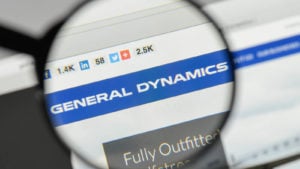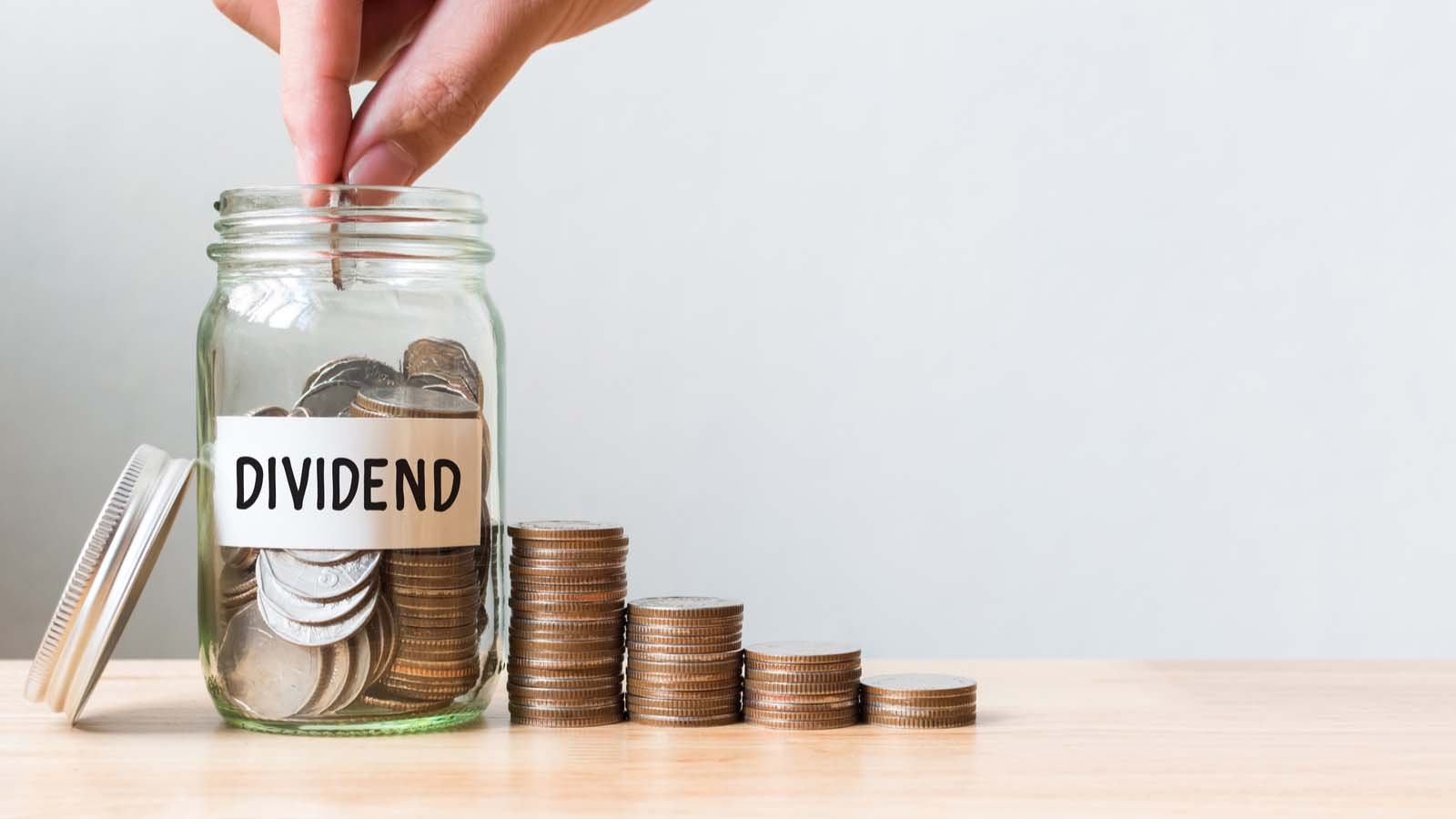This has been the most traumatic year for dividend investors since 2008, if not longer. Major blue-chip companies have been announcing dividend cuts or suspensions almost every day. Last Tuesday, Disney (NYSE:DIS) joined the crowd with its shocking decision to not pay its dividend for the first half of 2020. And in the high-yield space, it’s been an absolute bloodbath. Whole segments of the market, like energy, mortgage REITs and business development companies have seen their payments shrivel up. It’s looking grim for many dividend stocks.
Consider this. In 2008, it took the S&P 500 a subsequent three years to reach a new record dividend payout. If you owned an index exchange-traded fund in 2007, you were earning more income by the end of 2011. This time around, it appears the damage will last a lot longer.
The CME Group (NASDAQ:CME) lists dividend futures contracts, which are settled based on how many dividends one unit of the S&P 500 pays out over a year.
If you owned one “share” of the S&P 500 last year, it would have been worth around $3,000 and it paid out $56 in dividends in 2019. That’s as you’d expect. The S&P 500, as an index, has yielded around 2% recently. And normally, the index pays more and more dividends every year.
Now, however, the novel coronavirus has messed that up. The dividend futures suggest that the S&P 500 will only pay out $50 this year, marking an 11% drop from 2019. For 2021, dividends will be down again to just $44. It won’t be until 2026 that dividends get back to 2019’s level of $56 per unit of the index.
If you use index funds, that’s a depressing outlook. Meanwhile, inflation keeps ticking on, eroding purchasing power. There’s a solution to this unpleasant forecast: Pick dividend stocks that can maintain their payouts despite the sour economic conditions at present.
Here are seven such dividend stocks that are standing tall despite the coronavirus:
- Johnson & Johnson (NYSE:JNJ)
- Public Storage (NYSE:PSA)
- General Dynamics (NYSE:GD)
- PepsiCo (NASDAQ:PEP)
- Qualcomm (NASDAQ:QCOM)
- Colgate-Palmolive (NYSE:CL)
- Duke Energy (NYSE:DUK)
Dividend Stocks to Buy: Johnson & Johnson (JNJ)

Dividend Yield: 2.7%
Johnson & Johnson isn’t the highest-yielding stock out there by any means. But it is one of the bluest of the blue-chip dividend stocks. And with the coronavirus disrupting even many formerly safe companies, it’s worth going with the best of the best. In healthcare, that’s Johnson & Johnson.
The company’s diversified business model protects it from many short-term ills. Johnson & Johnson generates profits from pharmaceutical drugs, consumer medical and hygiene products, and medical devices. When one business isn’t going well, the other two can carry the weight.
Now, for example, medical devices are a bit slow as patients are delaying elective surgeries. But sales of consumer healthcare products, on the other hand, are brisk.
At 19x earnings, Johnson & Johnson isn’t screaming cheap here, but it’s not a bad price. Johnson & Johnson has hiked its dividend for 57 years in a row. And it’s maintained a constant 6% dividend growth rate over the past decade.
A rock-solid 2.7% yield from J&J with 6% annual hikes beats the S&P 500’s 2% yield by a wide margin.
Public Storage (PSA)

Dividend Yield: 4.4%
Real estate investment trusts have gotten pulverized in 2020. Just look at the headlines. You have bankruptcies all over the retail space, crushing shopping center and mall REITs. Many office tenants aren’t paying their bills with everyone working from home. And rent strikes threaten collections for housing REITs.
A few REIT niches, such as warehouses and data centers, have done alright. But average dividend yields in those groups tend to be fairly low. That leaves storage.
Public Storage’s stock has gotten hit to some extent in 2020 along with other REITs. People are afraid of real estate plays right now. And the whole movement around not paying rent and bills could cause some issues for Public Storage. Its units can be a touch pricey, particularly for folks that have recently become unemployed or otherwise have greater financial strain as a result of the virus.
That said, many people use storage units to guard their most valuable possessions and memories. It’s not going to be the first bill that people stop paying. In the 2008 financial crisis, self-storage actually performed well. Public Storage saw stable earnings. The economic crisis worked to the company’s benefit in a weird way — as people sold larger homes due to the market downturn, many turned to storage units to hold extra stuff that no longer fit in their smaller residences.
We don’t know exactly how Covid-19 will play out for storage companies yet, but assume Public Storage will continue to be one of the strongest REITs around. It has an A-rated balance sheet, making it one of the strongest out of all of America’s REITs. And its dividend track record runs decades now without any cut. It will keep paying through thick and thin.
General Dynamics (GD)

Dividend Yield: 3.3%
General Dynamics is a leading defense contractor. It produces submarines, armored vehicles and a variety of other military equipment. Given the nature of its business, you’d expect General Dynamics to hold up well in a recession, as the government keeps paying its bills. Yet, General Dynamics has fallen sharply this year, and is now down 50% since its 2018 high.
What’s going on? The company gets 25% of its revenues from its private Gulfstream jets. When musicians refer to G4s, G5s or G6s in their songs, they’re talking about General Dynamics’ luxurious private planes. Not surprisingly, investors are worried about private jet sales going forward.
In a crushing recession, surely sales will decline? Right?
Not so fast. In an era of prolonged social distancing, flying commercial will be more of a hassle. For business executives and celebrities with the cash, flying private will be an increasingly compelling choice. Social distancing should have a serious upside catalyst here.
More broadly, General Dynamics is cheap regardless. Private jets are just 25% of the business, after all. The company is selling for just 10x earnings, and earnings should be largely stable going forward. Meanwhile, General Dynamics has a history of raising its dividend for more than 20 years in a row, and is currently offering its highest starting yield in nearly a decade.
PepsiCo (PEP)

Dividend Yield: 3.1%
In general, I’m not partial to either side in the cola wars. At this particular moment in time, however, PepsiCo is the more defensive and reliable pick. That’s because nearly 25% of Coca-Cola’s (NYSE:KO) sales are affected by the stay-at-home situation. Coca-Cola sells a ton of drinks at movie theaters, restaurants, theme parks, stadiums and other places that are currently shut down or operating at minimal capacity.
By contrast, PepsiCo’s snack food business is its saving grace. People have been stocking their pantries. And with the stress of the virus, more than a few people have relaxed their diets for the time being.
Pepsico has been hit by the virus as well, to be sure. It also sells plenty of soft drinks at public venues. But having two businesses under one roof keeps its cash flow running much more strongly.
Coca-Cola has already had some issues with rising debt levels and uneven profit growth. As a result, for dividend growth investors, PepsiCo is the tastier choice right now. And Pepsico confirmed that last week. On Tuesday, PepsiCo increased its dividend by a solid 7% despite the turbulent economic conditions.
Qualcomm (QCOM)

Dividend Yield: 3.3%
The tech world is a bit complicated right now. Some companies are enjoying big tailwinds from the work-from-home trend. But, unfortunately, most of these firms aren’t strong dividend stocks.
The tech companies with stronger dividend yields are also, by and large, more exposed to a potential slowdown in consumer spending and supply chain disruptions in China.
However, Qualcomm has proven itself to still be a safe pick among dividend stocks right now. In fact, in April, Qualcomm hiked its dividend from 62 cents to 65 cents per quarter. In normal times, a 5% dividend hike might be pretty ho-hum. But in these conditions, any dividend hike is a reassuring gesture.
Some investors grew nervous about Qualcomm because of the delays in 5G rollout. But nothing has changed in the big picture. The world is going to need more data — the work-from-home movement only accelerates that. Sure, Qualcomm’s revenues may be a bit bumpy for a few quarters. But the company will be making windfall profits in due time. And until then, QCOM stock offers a solid income stream.
Colgate-Palmolive (CL)

Dividend Yield: 2.5%
Consumer staples remain one of the safest categories in the dividend stocks space. Even in a downturn like this, people still need their basic foods, beverages and cleaning supplies. Toothpaste and oral hygiene fall into that category as well. Colgate is the dominant leader globally in its niche. While upstarts have disrupted some consumer products in other categories like shaving, so far, Colgate continues to rule the toothpaste shelf.
Colgate stock has sold off about 10% in recent weeks, which has set up a better entry point. Some folks have noted that the stronger dollar is a bit of a headwind for Colgate, as it sells toothpaste in nearly every country of the world. Weakness in foreign markets means slightly less revenues.
That said, when foreign exchange is your biggest concern during the current economic crisis, you know you’ve got a winner on your hands. Colgate has paid a rising dividend for many years, and there’s no reason why that will stop anytime soon.
In fact, 2020 is off to a good start. Colgate posted sales growth of more than 7% in the first quarter as consumers stocked up on household goods. While Colgate is hardly the world’s most electrifying stock, if you’re looking for a undoubtedly safe blue-chip name with consistently rising dividend payments, Colgate-Palmolive shines as bright as ever.
Duke Energy (DUK)

Dividend Yield: 4.6%
A few months ago, you could reasonably argue that energy stocks were entering a bit of a bubble. Through January, their shares traded up consistently almost every week. Valuations reached extreme levels. Fortunately, for yield-seeking investors, the sector had a major shake-up as the market tanked.
While many energy stocks are still a touch expensive, some have come back toward fair value. Take Duke Energy. Now down more than 20% from its recent high, Duke is selling at 16x earnings. That’s neither expensive nor cheap for a leading electric utility company. In any case, it’s an acceptable price for a dividend-seeking investor.
In addition to the starting 4.6% dividend yield, you get consistent annual hikes on top of that. Sure, they’re not huge increases — roughly 4% per year in recent times. But again, given the current economic environment, any sort of consistent increase is a plus when so many firms are slashing their payouts.
Energy utilities may face some stress from the coronavirus as power demand slips a bit. But, being regulated entities, they tend to earn consistent profits and face only modest competitive pressure. You can still count on utilities such as Duke for a dependable dividend.
Ian Bezek has written more than 1,000 articles for InvestorPlace.com and Seeking Alpha. He also worked as a Junior Analyst for Kerrisdale Capital, a $300 million New York City-based hedge fund. You can reach him on Twitter at @irbezek. At the time of this writing, he owned shares of QCOM, PSA, GD and JNJ stock.
